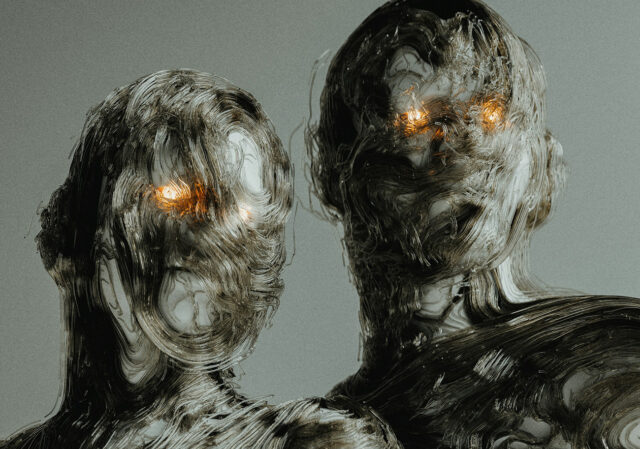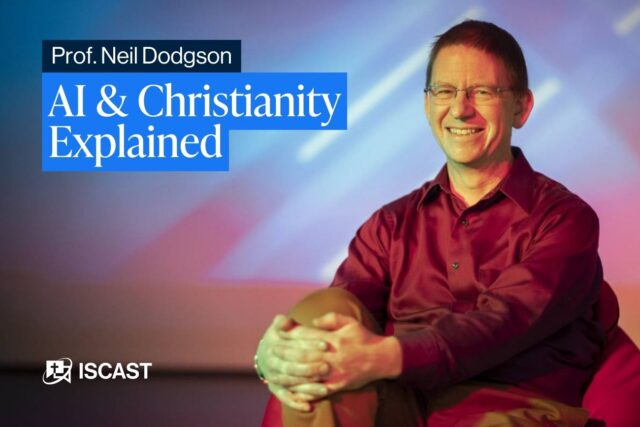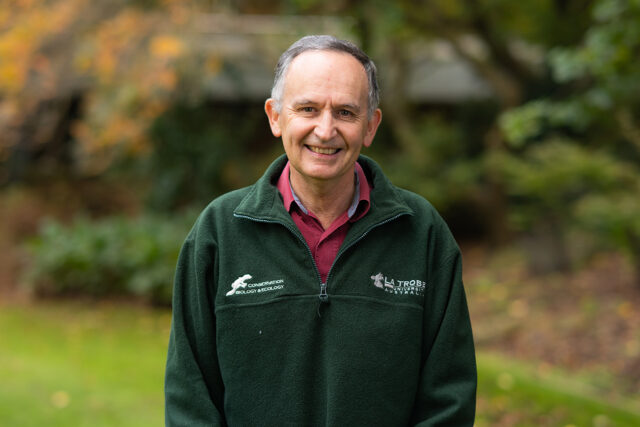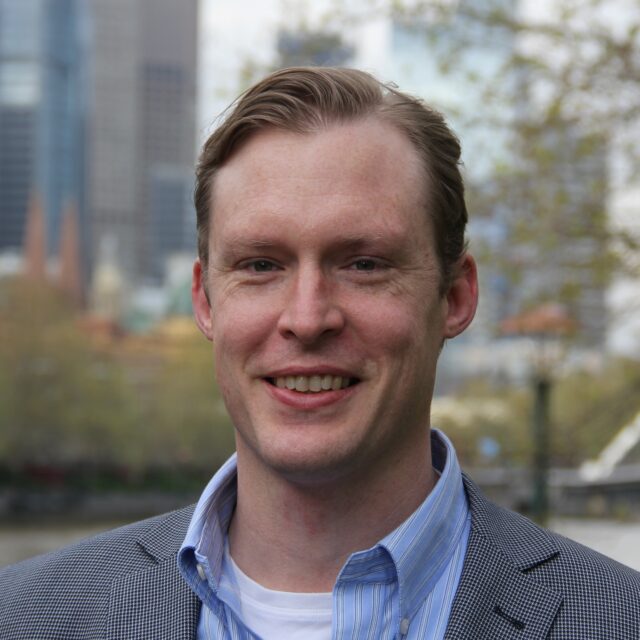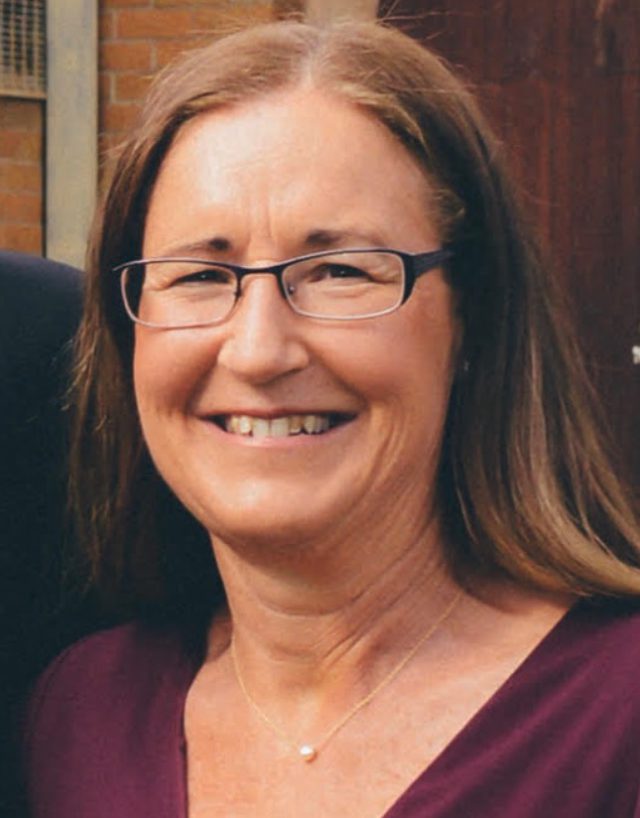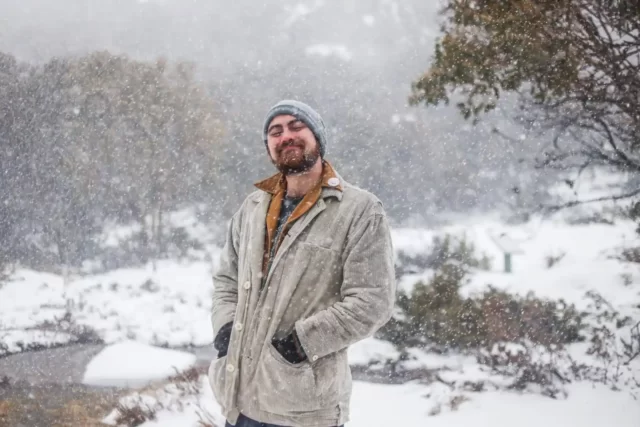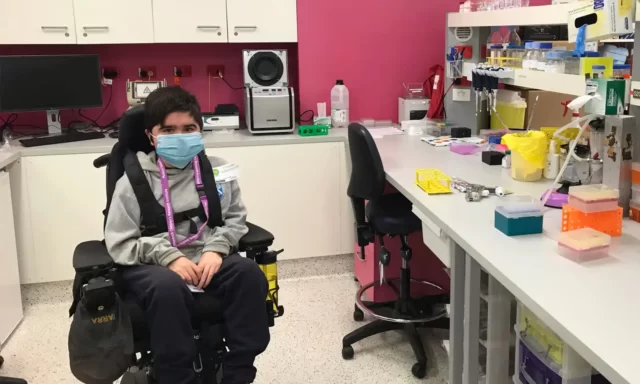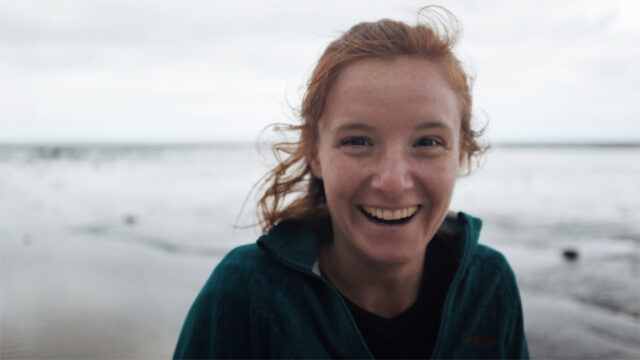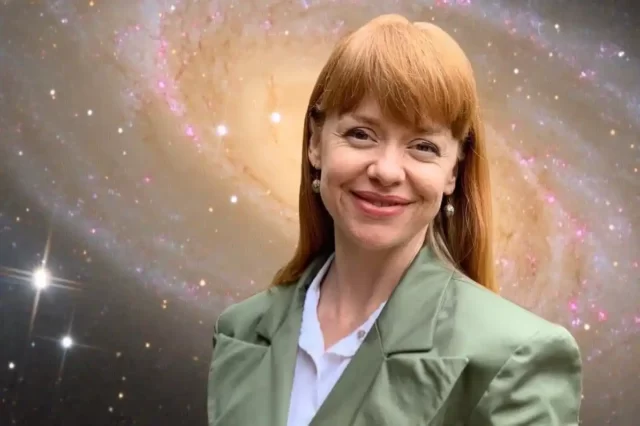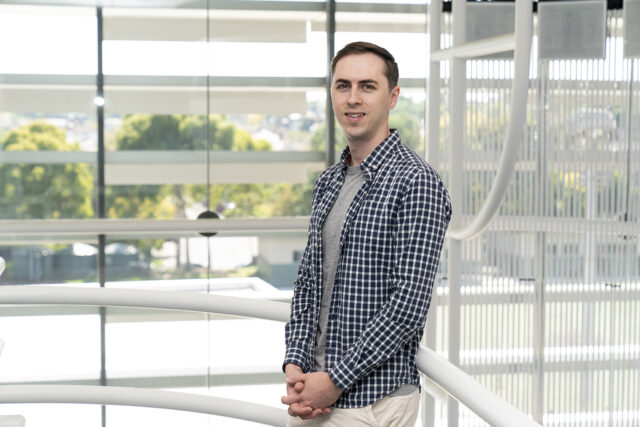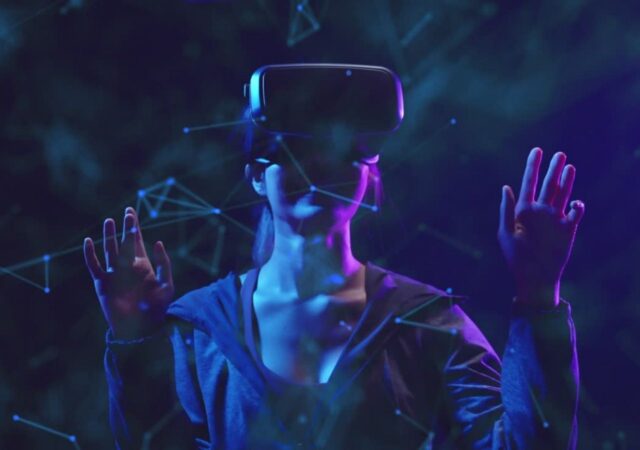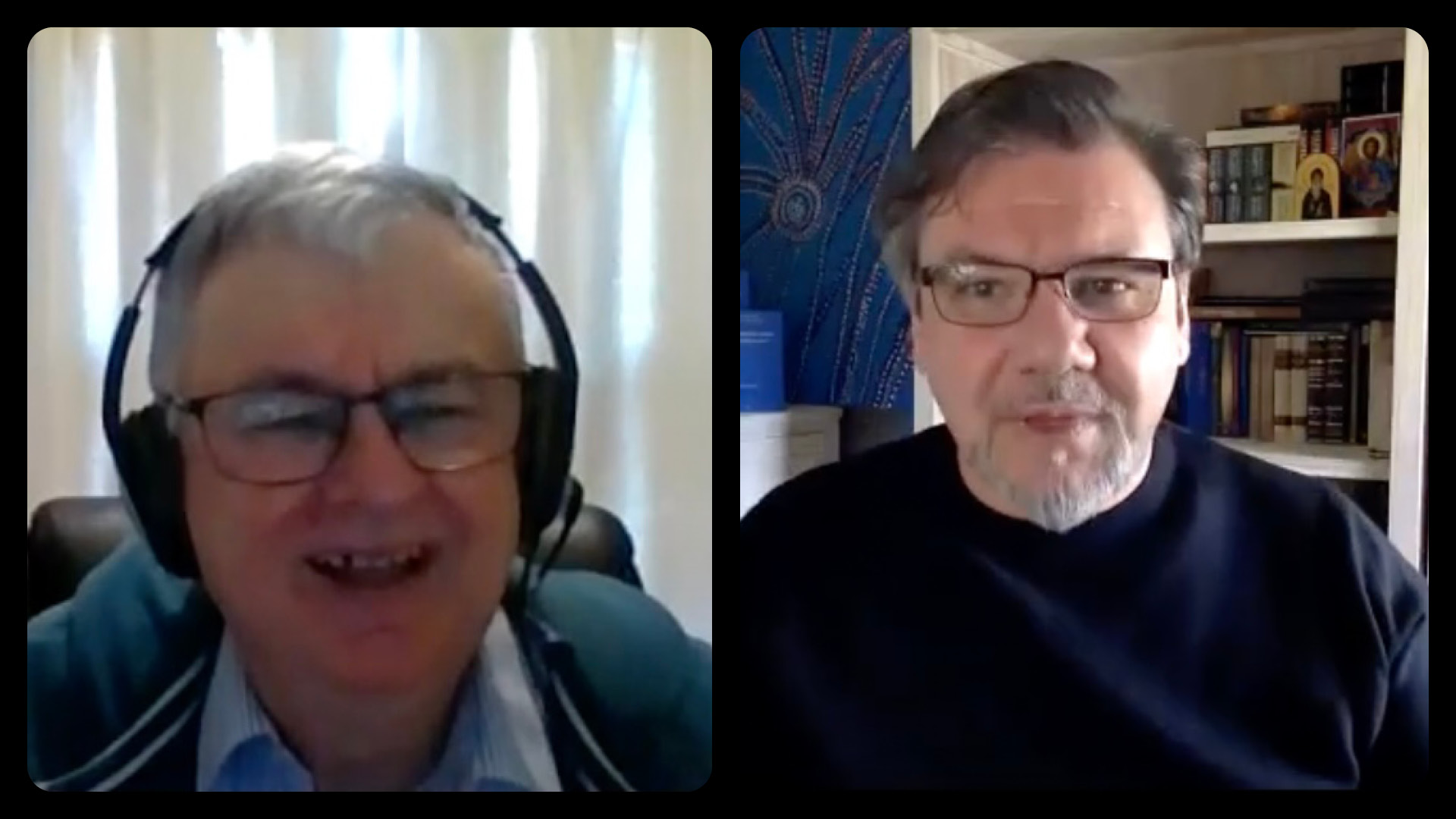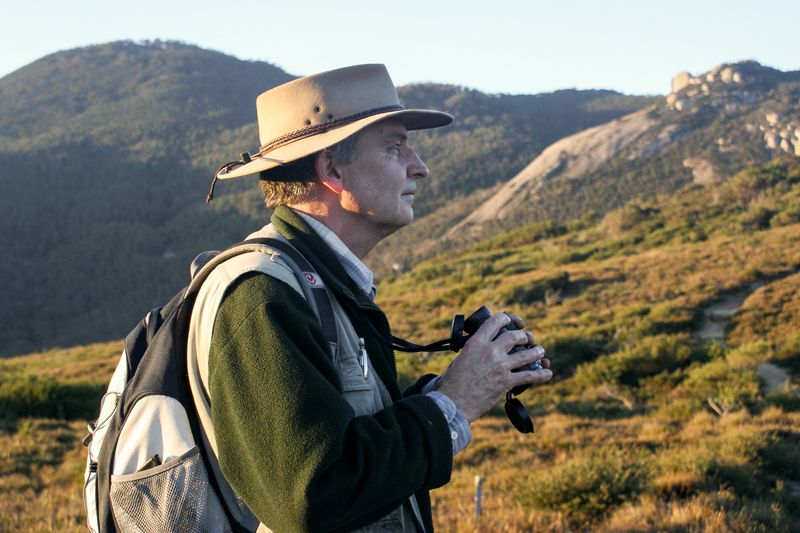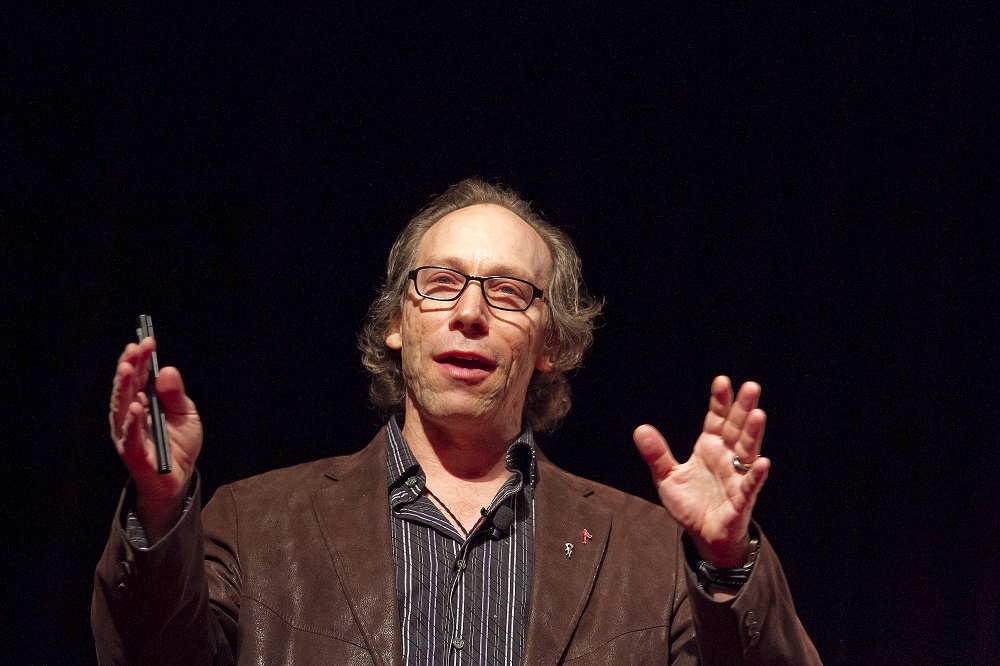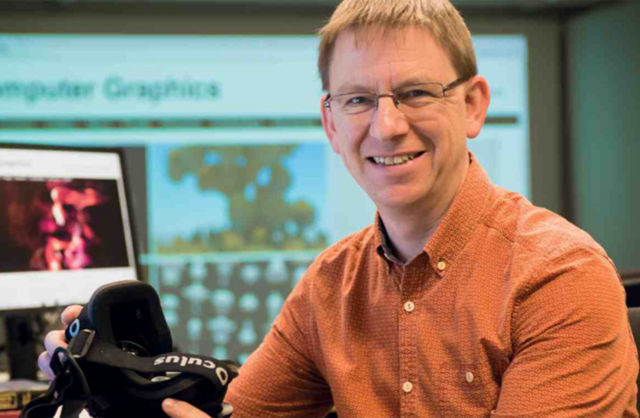
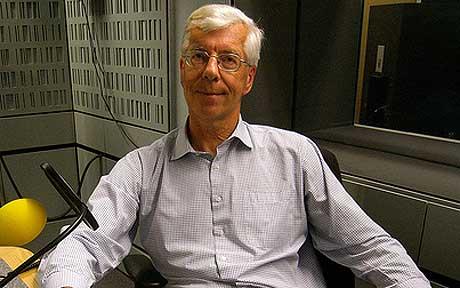
ISCAST Executive Director Chris Mulherin interviewed well-known UK scientist Denis Alexander. Alexander holds a PhD in neurochemistry and conducted research in human genetics, molecular immunology, and cancer for forty years. In 2006 he founded the Faraday Institute for Science and Religion at Cambridge, where was Director until 2012.
Alexander was in Australia to give the New College Lectures and kindly agreed to ‘tour’ Australia giving talks for ISCAST in Brisbane, Canberra, Melbourne, Adelaide and Perth. ISCAST is grateful to our friends at New College for making the tour possible.
To listen to the interview, click here.
To download a PDF version of the transcript, click here.
CHRIS MULHERIN: Denis, why don’t you tell me briefly a little bit about yourself, your background and your current interests?
DENIS ALEXANDER: Yes, so I’m a retired molecular immunologist. I spent forty years in the research community. Actually, I started life as a neurochemist as a PhD in the Institute of Psychiatry in London, but in later life I moved more into human genetics and then for the past twenty years before I closed down my lab I was actually working in the area of molecular immunology and cancer research. So, I’ve had forty years in the research community and covered quite a few different disciplines along the way.
In 2006 I set up the Faraday Institute for Science and Religion which, to the present day, is part of St Edmund’s College, Cambridge, one of Cambridge’s thirty-one colleges, and I set it up with my colleague Professor Bob White who is a professor of physics in Cambridge. So, that’s what I’ve been doing in my retirement, and I was director until 2012 and then handed it over to Professor White who is now the director of that institute. So, I’ve gotten more engaged in the whole area of science and religion and ethics, those sorts of things, in my retirement.
The genetic revolution
CM: Now, let’s go back to genetics, a lot has happened in the last fourteen or fifteen years in genetics since the sequencing of the human genome. Tell us what the significance of that is?
DA: That’s right. I mean genetics has been advancing at a great rate and, as with many sciences, it’s marked with several phase transitions where new technology comes along or new discoveries or advances which actually take the whole field into new arenas or applications. And the most recent one of those is a new genetic engineering technique called CRISPR/Cas which was really invented over the period from 2012 to 2015. That’s when a whole slew of papers came out concerning this technique, which basically like the rest of molecular biology is utilising systems which are already out there in the living world but applying them in different contexts.
So, CRISPR/Cas is a molecular complex that is found in bacteria which they use for their own immune system to defend themselves against attack by viruses and that kind of thing. And the way that it’s now used in genetic engineering is a little bit like taking a pair of genetic scissors inside the cell and the difference between this complex and the other ones that have been used is that it’s possible to make an excision and to cut the DNA in any cell at a very precise point. So, part of the complex is what’s called an RNA-guide molecule, this is like a guide that takes the complex to exactly the right place in the DNA and then the Cas bit is a bit of DNA that goes cut, and it cuts the DNA exactly where you want it, and it can just take out a genetic letter, a nucleotide base, out of the DNA and then the cell’s own machinery will put the “correct” DNA letter right back into the DNA. So, it’s a very powerful bit of molecular machinery that can be used to change any DNA of any organism in the world, including the human.
CM: Now, the DNA is the sort of code that controls our physical development, does this mean that we can cut out diseases?
DA: Potentially. There have been a number of papers out now on what they call “embryo editing.” So, taking a very early embryo—and they’ve been utilising embryos to carry a particular genetic defect for a particular disease such as thalassaemia, for example. The first paper that came out on this was from a Chinese group in 2015 and they were generating early human embryos in in vitro fertilisation clinics that carry the genetic defect that causes thalassaemia, and their success rate using CRISPR/Cas to correct that mutation was pretty low. But in the years since then there have been a number of other studies where the success rate has been going up quite a bit.
So, in principle it’s possible to do that and in practice it’s possible to do it. It’s still a research technique, and it’s illegal to then implant the corrected embryos back into a mother; that’s still illegal in pretty much all of the countries of the world where this work is going on. But I guess that’s the end goal, that’s where the research groups are thinking about for the future.
CM: So, you said that human embryos with thalassaemia were being developed, that means that we’re deliberately producing human embryos to experiment on?
DA: Yes, it would certainly involve that. So, if you take one research group last year in the States that published a research paper about a particular gene that causes thickening of the heart muscle when it’s mutated—and this is a common cause of sudden death in young athletes—and they managed to find somebody who had that particular genetic defect and they used his sperm to fertilise a whole range of eggs in vitro. So, this is a case of deliberately generating very early embryos which will have the defect and then to experiment with them using CRISPR/Cas to seek to heal those embryos and to remove the genetic defect that came from that one individual in this case.
CM: Let’s move on to other ethical and perhaps concerning issues. If we are able to edit the human genome, does this mean that changes will be passed on to my children, for example? And what if we get things wrong? And if we get things right, does this mean that we will be able to make human beings simply in whatever image we want to make them and just keep on making them “better?”
DA: Well, at the moment with the way that this technology is going, there is a risk of what they call “off target mutations.” So, let’s say you’re targeting one genetic letter out of 3.2 billion, that’s the total number of genetic letters in the human genome and human DNA. I mean that’s unbelievable precision, and until very recently, the problem was that there were almost always off-site targets, that is to say that changes were taking place also at sites where they didn’t want them to take place.
As it happens, last week a paper came out which claims to now have a new technique to prevent that and to make it much easier to quickly detect any off-target mutations and so on, so I think it’s pretty clear the way that the technology is going that pretty soon it’s going to be pretty tight. That there will be checks and balances in place in such a way that it will be possible to be pretty sure that only one single change is taking place. So, if that’s the case then yes, potentially people could heal embryos from a genetic disease in vitro in the laboratory in a way that that correction will not only be passed on to that individual but also to their generations to come. If they get married and have kids then they would also have no problem from that particular disease. So, it is a potential healing of that family history from that particular disease.
CM: So, you’re using the word “healing,” but what happens if somebody wants a taller child or a faster child or a blonder child? Normally we wouldn’t think of those things as healing but presumably we could also reprogram the genetics in order to bring that about?
DA: Height actually turns out to be very complex, and if we take something even more complex like intelligence or education attainment or sporting prowess, these are very complex traits that we have that are varied between humans of course in any given population. It turns out that there are hundreds, and probably thousands actually, of genetic variants that contribute to the variation in population with regards to education attainment. And so, in a sense the human genome is its own best protector against meddlers because it’s just so complicated. And so, I think it’s a little bit naïve to think that we can mess around with the human genome and create super-intelligent people because what we’re really talking about here is virtually a different kind of genome from the one that we’ve got, certainly a genome that’s different from what you’d find in a huge population range around the world.
So, in theory it looks like you could do it but in practice we’re talking here about thousands of genetic variants and there’s no guarantee that even if you changed all of those in one individual that that individual would become super-intelligent because these variants are identified in huge populations of people. A recent study came out looking at 1.2 million people of European descent and they worked out that there were 11,000 genetic variants that contribute to the variation in educational attainment in that population. So, in other words, it’s a little bit unrealistic to think that we can suddenly create individuals with super-intelligence.
The wacky eschatology of transhumanism
CM: I don’t know a lot about the transhumanism movement, but I know that that’s perhaps the sorts of aspirations that they are after, is that right?
DA: That’s right. Because, transhumanists, as the name suggests, what they want to do is to create humans beyond the human. And they have a very low view of our current biology and they just think that where we’ve got to so far is pretty pathetic and humans are feeble and we should use all that we can in the way of technology to try and enhance human capabilities. And they have the future hope that one day we will create machines that will actually think for themselves and then we’ll be so intelligent that it will be possible to download our own human minds into digital space or formats and then we will live forever with this sort of digital minds. I mean that is the sort of rather wacky eschatology that they have of this future hope, and so forth.
So, they’re very gung-ho with these kinds of technologies and I think also the trouble is that sometimes technology is a bit divorced from reality and of course, biology is a case in point where they do think that you could potentially genetically engineer the human genome to create super-intelligent people. I just don’t think that they’ve quite got their heads around the complexity of the human genome and of biology generally and how genes interact with the environment during the process of human development as well. So, I think there’s quite a bit of naivety there and I think it’s because many of them are computer geeks and they are people who are much more used to working with machines and with artificial intelligence, and much less used to working with biology.
CM: The other night I think you made some comments about the parallels between transhumanism as a sort of movement, and Christian faith?
DA: Yes, that’s right. I think in a sense transhumanism is a highly secularised form of Christian doctrine or Christian worldview in a sense. So, they believe in a parallel of sin. Sin for the transhumanist is living in a biological body with all of its failings and we should be really unhappy about that and we should want to get out of our bodies. So, alienation for them is the sense of being alienated from what we could be if we really tried hard enough and made wonderful machines and transformed humans into something technically quite different. So, salvation for them lies in machinery and in robots and in artificial intelligence and all that technical science can bestow upon us; so it’s a technoscientific salvation. And then they also have this eschatology where they’re looking forward to immortality, but the immortality is expressed not in a resurrected body, as in the case of Christian faith, but in a very platonic digital mind without any body in sight. So, some people have said that it’s “pie in the skies when we digitise.”
CM: So, despite all those parallels they don’t have a god, do they? Or, I guess their god is the super-human, the scientist even?
DA: Yes, I mean everybody has a god, and the transhumanists generally worship technology as their god. And beyond that they worship themselves because their goal really is the transformation of me. And it’s strikingly non-relational. This whole project is much more to do with my transformation, and my enhancement, and my future in digital space. There doesn’t seem to be very much room for human relations or what bodies can do for you. Some people notice that some of their aspirations are very much those of computer geeks. Their future hope for people is made in their own image. So, when they create something and make it in their own image, of course it has all the shortcomings of humanity.
Cultural reflections: Challenges and opportunities
CM: Moving on from that, or perhaps reflecting on that, you travel a lot and you speak a lot and you mix with people talking about these cultural issues. What do you see as the place of Christian faith in Western countries like Australia? We’ve had the New Atheism movement which was strong a number of years ago and seems to be fading. What’s going on in Western culture with respect to Christian faith?
DA: Well, as you know, Western culture is very fragmented at the moment, particularly in the USA it’s highly polarised, partly for political reasons, and of course politics gets mixed up with religion and that doesn’t help sensible, coherent discourse unfortunately. But the need that I see, which is happening to some degree in the churches in the Western world, is to not only generate but propagate a Christian vision that encompasses the whole of life and that shows how the Christian alternative to things like humanism and transhumanism and all those sorts of ideologies, is a far richer and more encompassing worldview than what they can provide.
And I think in that sense, transhumanism is a particularly interesting conversation because when you read it, it seems so obvious to the Christian where the deficits are and where there’s a lack of compassion and relational wellbeing and human flourishing. Human flourishing doesn’t really seem to happen through technology, it doesn’t seem to make them much happier, but once you get them out of poverty and out of the grind of being in some terrible low-paid job somewhere, well just more and more technology—from historical data—doesn’t seem to make people happier.
I think Christians can come in with a message here that human flourishing and all that we think about when we think about how to flourish as a human being in the world is much more likely to come as people find the ultimate goal in God who has the plan for the whole of the universe and gives a much more all-encompassing world view, I would say, than some of these worldviews that are very restricted to technical answers.
So, I think there’s a great opportunity that we have here as Christians to engage with these other worldviews and so on. I think the danger is that has happened to some degree in the Western church in the past half a century really is because of the increasing secularisation of Western society is the church has had a tendency to go into its spiritual castle and put up the draw bridge and throw the occasional rock out and so forth. It hasn’t always engaged as it could have done in the public space which is available to really engage other ideologies and to put forward its perspective robustly and carefully in the public domain. And I think there’s a great need for the church to do that.
As a matter of fact, I was just last week in Sydney with the Centre for Public Christianity and I thought that’s exactly what Christians should be doing, is to communicate through radio podcasts and magazines a vision of the world which is within the Christian worldview. It’s not preaching to people, it’s simply mapping out that this is what a Christian worldview looks like and this is its impact on science, technology, the arts, humanities, right across the board, and I just think that that’s where we should be heading.
CM: You’ve been very involved in Christians in Science in the UK and the Faraday Centre obviously. What is the place for organisations like that—here in Australia ISCAST, also known as Christians in Science—in this cultural discussion?
DA: I think they can play a very important role because in terms of Christians in Science and ISCAST and so forth, they can gather together Christians in the community, not only to discuss their own relationship between science and faith and their own particular disciplines, that’s really important, but I think also to make the point to wider secular culture that it’s very normal to be a Christian in the scientific community. And I think that’s the point often missed by scientists; they don’t often know the history of science, they don’t know that modern science was basically started by Christians more or less. So, the Christians can sort of huddle a little bit together without making it clear that their Christian faith is really relevant to their science in many different ways. So, I think that’s a very important role that Christians in Science and ISCAST can do, and that is likewise what we’re seeking to do in the Faraday Institute for Science and Religion in Cambridge.
CM: At the Faraday Institute, what are those things that pleased you most? Those things that you were most happy that you were able to do?
DA: I think one of the things that we’re most happy to do is to engage with the scientific community; that’s always been top of our list really, in ways that they find interesting and attractive and that brings a lot of scientists along to activities and so forth. And so, sometimes that’s been through quite large public events and other times it’s just been through workshops or through conferences and so on.
We had a workshop a few years ago to mark an anniversary in the life of George Lemaître, the Belgium priest who was the first one to describe what we now call the “big bang.” He called it the “primeval atom.” (There was a famous paper that he brought out in 1931—well, the translation from French into English was in 1931—and it was translated as the “primeval atom” and what later on came to be called the “big bang,” and there’s no doubt that he was the originator of the idea of the big bang as a mathematician). Well, we had a conference to celebrate the 1931 paper and a lot of people came along to that and it made quite an impact more broadly within the field of mathematical physics and so forth. So, those sorts of things we were very happy about.
Some years ago we sponsored a play, this was to help celebrate the eight-hundredth anniversary of the founding of Cambridge and we wanted to contribute something that was relevant to science, religion and also relevant to the history of Cambridge. So, we sponsored a new play on Isaac Newton which the playwright called Let Newton Be, and that was put on for the first time in 2009. So, we had the premier performance in Trinity College, which is Newton’s old college, and we had Stephen Hawking to give a welcome to the play. And Lord Martin Rees, who was the master of the college at the time, came along to give it a welcome and so forth. So, that was open to all the fellows of the college and people who wanted to come along and so forth. So, that kind of thing … placing an artistic creation right in the middle of Cambridge in one of its best-known colleges, I mean that sort of thing, we like doing that. We don’t want to huddle away with people around the table talking to themselves, we want to talk to the wider community through the arts and through science and so forth to get the message across that science and religion is a very positive discussion and there has always been this positive relationship between these two domains of activity.
Another thing that we were very happy about in the Faraday Institute is that although we don’t do public debates, we do from time to time do public discussions which have a different flavour where we allow people with different views to stand up and express their different views in a public domain. And we had one back again in 2009 I think, and this was the time when New Atheism was still quite prominent in the media and so forth in a way that it’s certainly not now. We decided to get the Archbishop of Canterbury in discussion with Professor Terry Eagleton who is a well-known English literature professor and literary critic, and who we actually thought was an atheist (that’s why we invited him) and we gave them the topic of “Responses to New Atheism.” So, Rowan Williams did the religious response to New Atheism and Professor Eagleton did the political response to New Atheism. And we had it in Great St Mary’s—this is the university church in Cambridge—and it was packed. It takes 1400 people and it was absolutely packed, and we had a huge number of atheists come along.
But I was chairing this meeting and then Professor Eagleton stood up to give his ten minutes presentation. He’s very funny actually; he’s very critical of Richard Dawkins—in fact he’s written a whole book critiquing New Atheism from an atheist’s perspective—and the funny thing was that he talked more about Jesus than the archbishop. He’s kind of a 1960s socialist but it turned out, we didn’t know that Professor Eagleton had rather returned to his Catholic roots and was no longer the stringent atheist that we had imagined him to be. So, we got a bit of flack because they thought we’d set this up, but we really hadn’t, in good faith we had invited him; we thought he was a proper atheist.
But those were the sorts of things that we were quite happy about because they just bring a lot more people into the discussion and they help different people to come along and get engaged.
CM: We’re driving through the streets of Melbourne at the moment and there are hundreds and thousands of people around us, this is where the rubber meets the road. Many or the majority of people would think there was a fundamental conflict between robust and serious science, and robust, serious Christianity. How do we deal with that at the popular level?
DA: Well, first of all it’s a strange thing that that is part of our culture and there’s quite a lot of interest as to where these ideas come from. I think most historians would see the so-called conflict between science and religion as really emerging through the latter decades of the nineteenth century with the growing professionalisation of science. And I think the idea there is that as science began to become a separate profession from the rest of the academic disciplines, so somehow scientists, as they came to be called at that time, they went their own particular way and the theologians went their way and they lost the art of talking to each other. And then during the twentieth century that was rather reinforced by various things that happened. It’s a fairly recent phenomenon in the history of science and religion to see them as two separate domains, I think most people would see them as only really separating out in the nineteenth century and becoming two different disciplines and ideas. So, how do we change that?
Well, there are many different ways. I think one really important way is simply when the scientific community is aware that there are really top scientists, which there are, who are really committed Christians, then I think that in itself has a very powerful influence. And I can give you an illustration of that.
When a professor named [Elaine] Ecklund, who is the professor of sociology at Rice University, when her team were doing a huge great study of the religious beliefs of scientists in the USA and comparing them with the religious beliefs of scientists in many other countries of the world, what they found particularly in the United States was that—although they weren’t asking questions about this particularly—during the interviews when they talked with scientists who were selected at random, quite a number said, “Well I know it’s possible,” or, “I know I’m not a religious person myself, but I know it’s possible to be a Christian because Francis [Collins] is.” And they all know that the Director of the National Institute of Health, which is the top science job in the USA, is a committed Christian and he’s been quite public about his faith. And that fact alone I think has helped many scientists to say, “Well, I’m not religious but I know you can be and you can be a good scientist because look at Francis Collins.” I’m just picking on him because I know that he was cited by Ecklund, but I think there are a number of other examples where that’s the case.
As a matter of fact, I think we in the Faraday Institute have played a small role in giving Christians who are quite well known in the scientific community a public platform in which to share their ideas about what it means to be a Christian in the scientific community. And I think that in itself has probably had some influence in people’s thinking.
CM: Well Denis, thank you very much for talking to me and I hope you enjoy the rest of your time here in Australia.
DA: Thank you very much.
